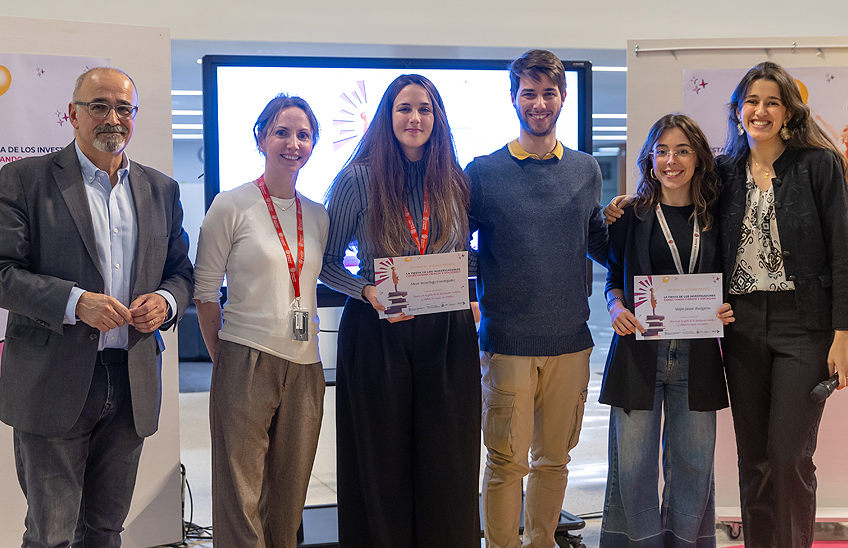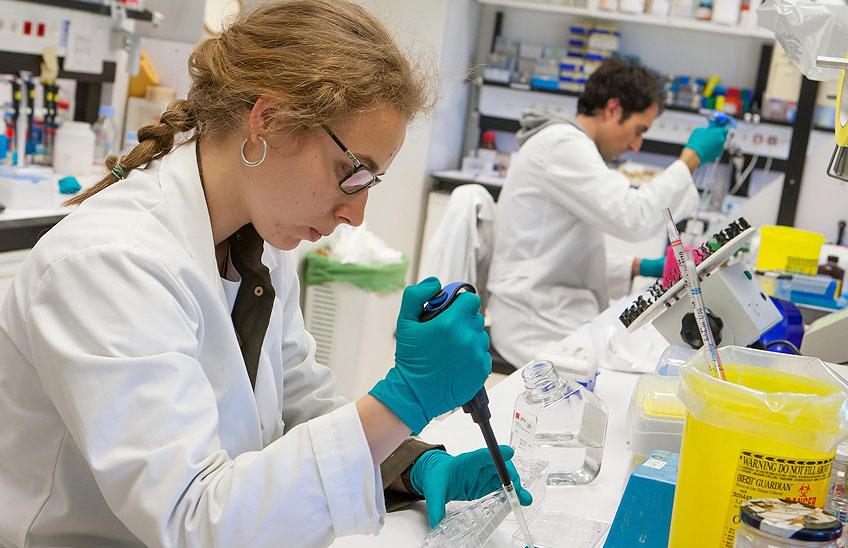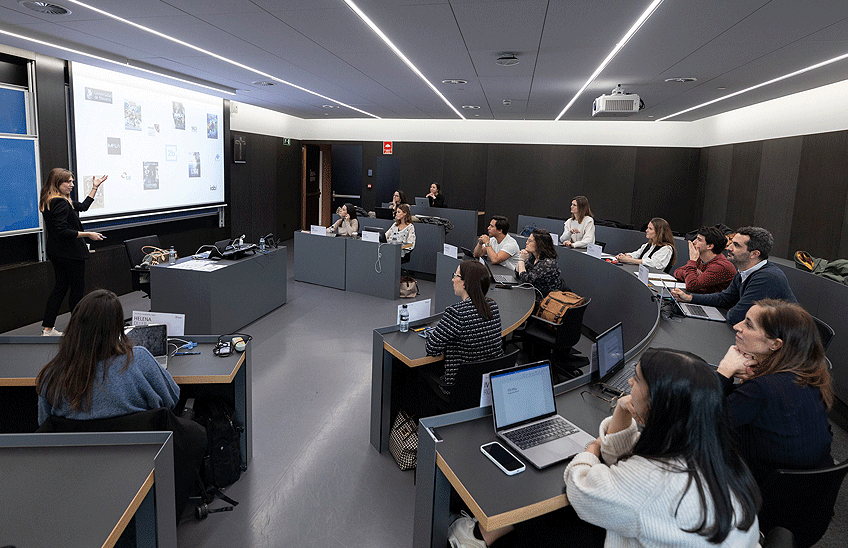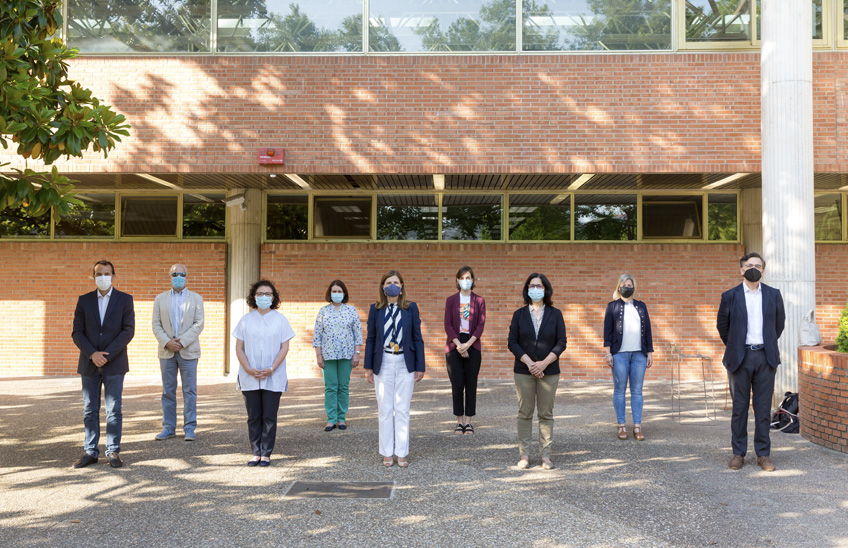Nieves Acedo: "Art has the function of healing our relationship with the environment".
The researcher leads 'Models for Art Spectatorship (MOAS)', project integrated by a team of the ICS, the Museum of the University of Navarra, the School of Architecture and the School of Philosophy y Letras
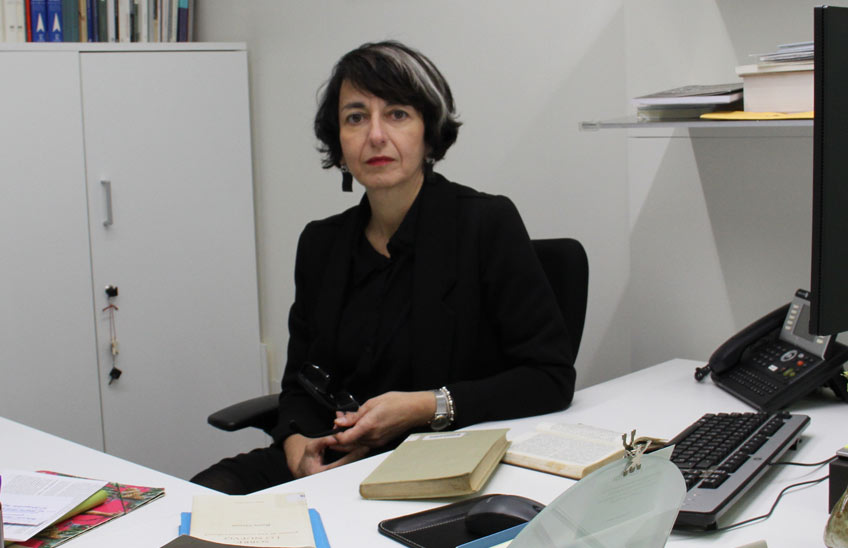
FotoCedida<br>/La investigadora Nieves Acedo, del grupo 'Vínculos, creatividad y cultura', del ICS.
27 | 11 | 2024
Going to a museum to contemplate a sculpture by Jorge Oteiza allows us to enjoy the beauty, but it can also be a transforming experience. When the visitor begins to establish links with the work, he becomes a spectator and the possibilities multiply.Models for Art Spectatorship (MOAS)', one of the two projects selected in the internal call for proposals of the Institute for Culture and Society (ICS) of the University of Navarra this year, is based precisely on this conviction. The work, which will run for three years, is led by Nieves Acedo, researcher at the ICS's group 'Vínculos, creatividad y cultura', and is made up of a team multidisciplinary of researchers from the center itself, as well as from the Museo Universidad de Navarra (MUN), the Escuela Técnica Superior de Arquitectura and the School of Philosophy y Letras.
"The political and social role of art has less to do with the transmission of contents than with the regeneration of democratic subjectivity. Nowadays, our condition as conscious and active citizens is negatively affected by the 'bogged-down' life, the kidnapping of attention, dispersion...", explains Acedo. In this sense, he claims that "art has the function of healing our relationship with the world. What matters is not so much what we see inside the museum but how we look and see the world when we leave it.
To explore and promote this public function of art, the figure of the spectator will be investigated: "By spectator we mean the person who becomes position of the work of art as a work of art. That is, who is able to establish a link with it and, through it, recover or establish links with others or with the environment. Not all the people who constitute an audience or a public become spectators".
Likewise, project has an applied part: "It consists of searching the world for artistic, curatorial or mediation practices that can be considered good practices because they allow the establishment of this link between the spectator and the work of art. However, he clarifies that "either an institution or specific proposals can facilitate or allow the spectator-artwork relationship to develop, but they can also obstruct or hinder it.
network international
Once analyzed, the cases will be shared with researchers and other professionals with the goal to weave a network integrated by institutions, artists, curators and mediators, among other agents. "At the MUN we have the opportunity to carry out pilot workshops because the museum itself seeks to be an institution laboratory and offers us its spaces, audiences and know-how." In addition, they are going to contact other institutions, museums and professionals from the United States, France, Holland and Ireland to study particular cases of selected practices in this field and be able to evaluate them: "We want to generate relationships with the idea of, in the future, developing and consolidating a network of institutions that want to learn together and promote ways of giving space to the free experience of the art spectator". Also planned is the development of laboratory de Pausa, a series of experiential workshops to be held at the MUN.
The multidisciplinary character of the researcher team favors a multifaceted research , carried out from fields such as art history, curatorship, Philosophy, cognitive theory, design or Education. One of the barriers to overcome is the difference in the use of some terms in different disciplines. Starting from discussion sessions, they are working on the development of a shared glossary of relevant terms to deepen the theory of artistic expectation: "They are tools that pass from one scientific field to another and, in order to use them properly, we need to know them well. It is a matter of creating a common language that will allow us to move forward".

